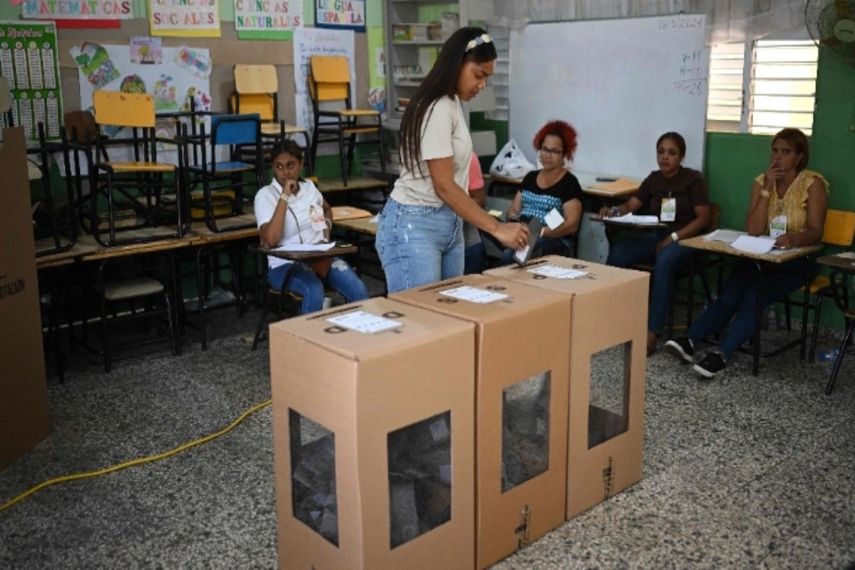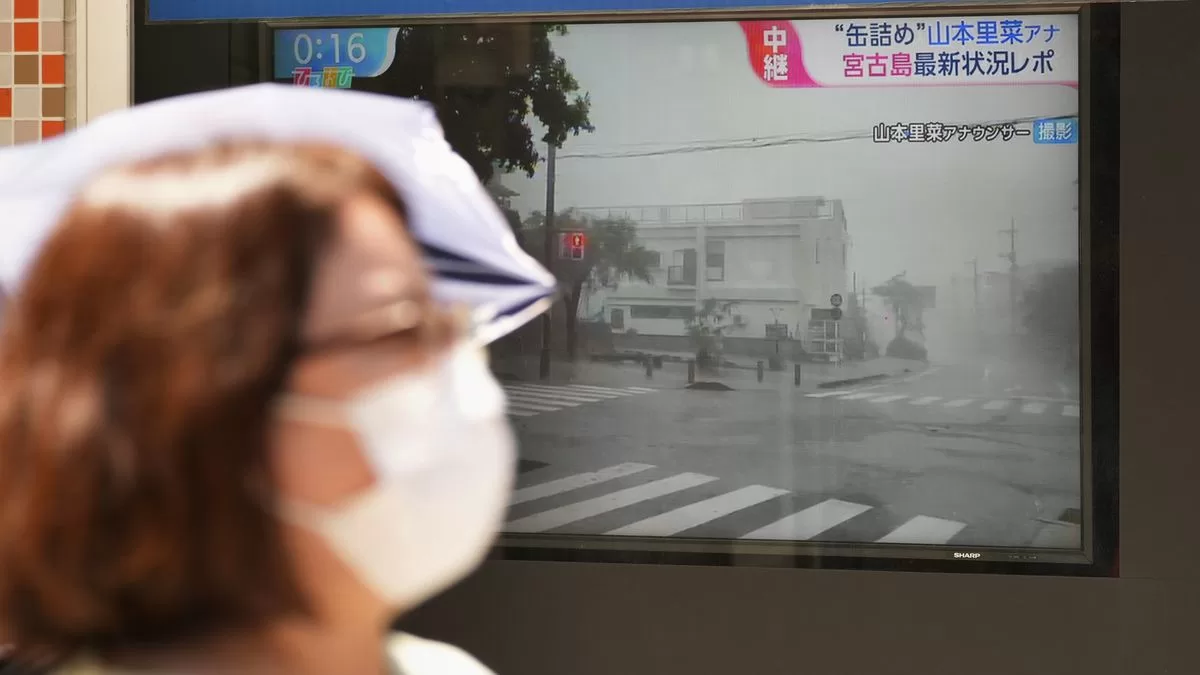“I assume the trust that I have received and the obligation not to disappoint it. “I will not fail you,” the Dominican president offered in his first words, after knowing preliminary results. “And above any partisan sentiment is my loyalty. “I am and will be the president of all Dominicans,” he said to the cheers and applause of his followers.
To win in a single round, he had to exceed 50% of the votes.
Abinader, one of the most popular leaders in Latin America, underpinned his campaign with promises of immigration control and offered to maintain his strategy to stop the flow of Haitians to the Dominican Republic, characterized by an increase in deportations and the beginning of the construction of a border wall.
With 21.12% of the count, the 56-year-old president, who came to power in 2020 through the Modern Revolutionary Party, led the count with 59.09% of the votes. “The electoral results have been very generous to me and my party,” he defended.
He was followed by Leonel Fernández, from Fuerza del Pueblo, with 26.94% and the former mayor of the second most important city in the country, Abel Martínez, candidate of the Dominican Liberation Party (PLD), with 10.76%. The two opponents had also offered to confront migration.
Both recognized their defeat, in the absence of definitive results, in an election marked by the proposals of the candidates against migration in the face of the strong challenge posed by the deteriorated situation of its neighbor Haiti.
Willy Soto, a 21-year-old economics student, was among Abinader’s followers and defended the president’s anti-corruption measures, as well as economic and educational reforms for the future of a country plagued by political corruption. “We young people have seen a different government,” he said.
He acknowledged that the “policies against (Haitians) are very strict” but necessary to maintain the safety of Dominicans like him. “This is not an issue that is resolved overnight,” but he supported his strategy, “the way he pushed it, closing the border” and building the border wall.
Three and a half hours after the polls closed, the president of the Dominican Electoral Board, Román Jáquez Liranzo, appeared to ensure that the electoral process was “safe, transparent and open to the world” before 551 international observers.
Yireini Gil, a 29-year-old public employee, asked President Abinader for the next four years to complete “the wall as he said months ago” and to regularize the undocumented. “That the Haitians who are illegal be sent to their country and Those who are legal can leave them here,” he said.
He also hoped that it would focus on improving the quality of education, the conditions of the health sector and citizen security.
For her part, Ernestina Durán, a retiree from the health sector, said that she voted with the objective that the president would address the basic problems of the population. “We have to fight a lot in education, we have to fight a lot for health, especially mental health.”
During his administration, Abinader executed controversial measures to confront the rebound in Haitian migrationgiven the decline of the neighboring nation due to the impact of violence and gangs accentuated since the assassination in 2021 of then-president Jovenel Moïse.
During his administration, the president and candidate for reelection began the construction of a border wall in February 2022, in an approach similar to that of former president Donald Trump in the United States, to prevent the massive crossing of Haitians into the Dominican Republic on a border fence. of 400 kilometers.
But, in addition, it has refused to build refugee camps for those fleeing violence and instability in Haiti and has increased deportations of undocumented migrants to more than 175,000 in the last year, according to government figures.
These measures, however, have also garnered criticism from human rights organizations for being discriminatory.
“These collective expulsions are a clear violation of the Dominican Republic’s international obligations and put the lives and rights of these people at risk. Forced returns to Haiti must stop,” said Ana Piquer, Americas director at Amnesty International. in an open letter to the president of the Dominican Republic.
This, for his part, took the matter to the last General Assembly of the United Nations and to the meeting of its Security Council, where he was categorical in claiming that the situation in Haiti “cannot wait any longer” and that the deployment of an international force for its pacification.
On the other side, there are those affected by the deportation measures, who do not vote in the elections.
Deborah Dimanche, who had been residing in the Dominican Republic for two years, was detained by immigration officials while she was going to her workplace and was taken to the detention center located in Haina, from where she would be deported.
“They say that they are not going to hand her over, that they are going to purify her and that they will send her to Haiti,” her partner Juan René, of Dominican nationality, told the AP on Thursday at the center’s gate, pleading to be allowed to speak with her. .
Jonairis Montero, who works in social media management for 31 years, I expected transparent elections and was inclined to revalidate Abinader’s management. “He has done a good job,” he defended.
“I think we can give it the opportunity again to see what other new things it can continue to offer,” the woman insisted and mentioned that there is a need for an improvement in education. According to her, the Dominican governments have only invested in infrastructure and not in quality. of teaching.




